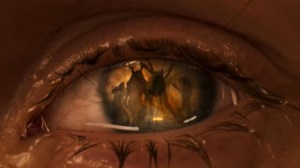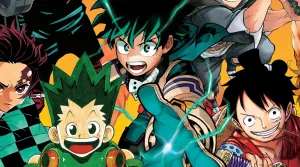Masamune Shirow’s Ghost in the Shell is one of the most beloved pieces of modern fiction to originate from Japan. Both as a manga and anime film, the original story and many of its sequels have garnered critical acclaim and commercial success. This speaks to both Shirow’s powerful storytelling and the continued importance of the themes he explores.
Videos by ComicBook.com
Ghost in the Shell tells the story of police officers in a futuristic Japan, specifically The Major and Chief Daisuke Aramaki, as they target a mysterious puppet master hacking into technology and causing chaos. Through the lens of these three characters and an expansive supporting cast, Shirow rose questions of what it meant to be human and how technology would change society in future decades.
These questions have not been answered since the manga was first published in 1989. Instead, they have only become more pressing.
Now with the live action adaptation of Ghost in the Shell ready to be released in the United States, it’s apparent that Shirow’s story is more relevant than ever. Here are a few of the key ways in which this manga, anime, and new film tackle important issues that confront all of us in one way or another.
Check out the next few slides as ComicBook addresses technology, humanity, politics, and race, making this movie more relevant now more than ever.
Integration of Technology
One of the key factors of Ghost in the Shell is how technology would be integrated into everyday life. Characters can pull up loads of information, message one another, and communicate by phone while sprinting down a street. That all seems relatively normal today, but considering the ideas are from 1989, it is downright prescient. What is more interesting than the predictions of what technology might be capable of in the future, is how much we would come to rely upon it.
Technology isn’t just something all of the characters in Ghost in the Shell use; it’s quite literally a part of them. The Major is almost entirely machine and The Chief’s appearance is notable for his covered eyes. They don’t pull iPhones from their pockets, they are iPhones to a certain extent. As technology becomes smaller and we become more dependent on its constant use, the line between life with and without technology becomes increasingly blurred. Ghost in the Shell seriously examines the consequences of allowing our digital devices to become an integral part of our daily existence, a dependency. That is something we must consider for ourselves with each new step toward normalized integration of man and machine.

Definitions of Humanity
This combination of technology and humanity also raises questions of what defines the latter within the story of Ghost in the Shell. The Major is notable for being almost entirely machine. Her body is a construct that hosts a free floating brain. This forms the basis for a fascinating modern take on the Ship of Theseus, a classic philosophical question about when the replacement of too many elements makes something cease to be its original self. The Major only retains her physical brain and another character pushes that boundary even further.
We lack the technology to make ourselves digital beings, but there are still questions of what we consider to be a part of ourselves and what connects us as human beings. Prosthetics are becoming more advanced and significant to the functioning of many people in society. Furthermore the use of technological or biological enhancements have become part of people in many ways. This is a trend that is not slowing in any way either. As we continue to change ourselves more, we must continue to understand what makes us people and defines our humanity. That is a question Ghost in the Shell raises and helps to answer.

Obfuscation in The World
While Ghost in the Shell is a modern classic of science fiction, it’s also a wonderful political thriller. As the members of Public Security Section 9 begin to hunt the Puppet Master, they find themselves in the midst of a conspiracy much larger than they can hope to unwind on their own. It’s a story that weaves its way through government and corporate interests with plenty of individual motives at play as well. The scariest part about the conspiracy is how easy it is to recognize each of the motives and actors within our own systems.
The key to this story isn’t its complexity, but how the systems in place allow for tremendous actions to be taken without the public’s awareness. State actors protect their secrets by fiat and corporations bury their actions beneath loads of red tape. The world of Ghost in the Shell moves in a frightening direction and almost nobody is wise to it. In this way Shirow reminds readers of the importance of oversight and transparency in all systems, and of the growing dangers of secrecy in modern society.

The Politics of Race
This topic is different from the preceding issues because it is not as clearly baked into Shirow’s original manga. While it’s possible to discuss themes of race in that manga and the original anime, it is the recent live action adaptation that has brought this issue to the forefront of the story. And it is something that needs to be discussed.
The whitewashing of The Major’s role by casting Scarlett Johansson raises troubling issues of how stories are altered for audiences and what that says about the individuals producing entertainment. There seems to be a lack of faith in the ability of a person of Japanese descent to carry a film based around a Japanese character. It is a choice that calls into question both the decision-making of producers in Hollywood and potential prejudices within moviegoing audiences, and it’s something we need to confront. While this isn’t inherently a component of Ghost in the Shell, this choice and the controversy surrounding it has raised a significant issue. The opportunity to discuss it shouldn’t be ignored.
No matter which angle you view Ghost in the Shell from, or which version of the story you consume, it’s clear that this is a tale packed with meaning. Shirow’s work has only grown in worth and today it holds more value than ever before. As we move into the future and tackle increasingly complex issues of technology, humanity, secrecy, and race, Ghost in the Shell will only become more relevant.









